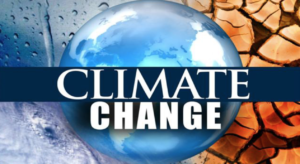
More and more people – both experts and laymen alike – are understanding we are in a climate emergency with predictions of environmental, and hence social collapse, anywhere between 3 to 10 years time (2022 to 2029). The likely consequences include economic collapse and loss of services such as education, social support and health services, mass extinctions, loss of food production, disease outbreaks, the mass starvation of humans, broad spectrum civil unrest at the community level – people get violent when they are hungry and scared – and at national levels leading to global wars. In your personal situation consider if food became short how long could
you last? How much food do you have? How can you protect it from hungry neighbours. Who would you share it with? And who would you say no to?
This is difficult to hear, to understand and evaluate, to feel the emotions that come up and to face possible futures. It is very easy to avoid it – “too difficult, I’ll go back to cleaning the house” or to deny it and go into disbelief “It’s scare mongering” or “They will look after us”. It is really easy to go into sadness, despair, fear and anger. I know when the Fukushima reactor disaster happened in March 2011 I was saddened and shocked. I felt hopeless. It seemed like a major life threatening catastrophe had occurred. My first reaction was to ignore it and focus, for in the end what could I do? Instead I chose to sit and watch it live on TV, for two days I cried and cried. Then I was done and felt a deep commitment to life on this planet and addressing these situations.
Now, 8 years later, I have dived back into evaluating the situation and are completely shocked. I’d been addressing local issues and developing solutions but I had not looked at where we are at for a while. My body froze, I could hardly read any more and my emotions bounced between terror, fear, sadness, guilt, anger, hopelessness and regret. As I write this I’m still in the middle of the emotional journey.
As responsible people, whether you see yourself as environmentalists, stewards of the earth, parents or just the average person in the street, how do we evaluate this and come to terms with the current situation or even just start to comprehend it? What are we as humans responsible for?
Here are some questions for you to hold and consider whilst you go through this process. Later I will write an article with suggestions as answers to each of the questions.
-
- Where can I find reliable realistic information?
- How can I research in a timely fashion without spending 6 months full time researching or becoming a climate scientist?
- How do I look after myself and those around me emotionally through this process?
- What am I willing to take responsibility for?
- How do I make decisions? What information do I need to make a decision?
- How do I prepare myself, my family and community for what is likely coming?
- If I chose to make significant changes in my life, how can I do that and emotionally handle it?
- Who can I trust and rely on to prepare and to be there if things get rough?
- How do I share this information, my journey, conclusions and decisions with others – especially my loved ones as well as others that may not agree or be willing to look at it.
So do we need to move out of the city? My conclusion is yes, find secure land with trees and water supply, find like minded people and build community, put in green energy and create a food supply and small businesses to sustain us. In other words, create an ecovillage.
Below are a few links from experts that make interesting reading.
Sustainability expert Michael Mobbs: I’m leaving the city to prep for the apocalypse
The 69-year-old former environmental lawyer who, in 1996, converted his two-storey 19th century Sydney terrace into one of the world’s first inner-city self-sufficient homes, is selling his famous passion project and moving to a remote coastal location to prepare for what he predicts will be impending societal collapse induced by climate change.
Read moreFacing Extinction
For much of my life, I thought our species would soon go extinct. I assumed we might last another hundred years if we were lucky. Now I suspect we are facing extinction in the near future. Can I speculate as to exactly when that might happen? Of course not. My sense of this is based only on probability. It might be similar to hearing about a diagnosis of late stage pancreatic cancer. Is it definite that the person is going to die soon? No, not definite. Is it highly probable? Yes, one would be wise to face the likelihood and put one’s affairs in order.
Read moreEmbracing the Apocolypse
For many, the word apocalypse brings to mind social or environmental breakdown, collapse, or destruction on a grand scale.The times we live in reveal many truths for those attentive enough to see them. Some of these truths portend significant changes in our lives and our social arrangements. If we embrace these truths rather than deny them, they might also give us clues on how best to adapt to the changing world we live in and to whatever new world awaits once the proverbial dust settles.
Read moreWe have 12 years to limit climate change catastrophe, warns UN - The Garudian
The authors of the landmark report by the UN Intergovernmental Panel on Climate Change (IPCC) say urgent and unprecedented changes are needed to reach the target, which they say is affordable and feasible although it lies at the most ambitious end of the Paris Agreement pledge to keep temperatures between 1.5C and 2C.
Read more